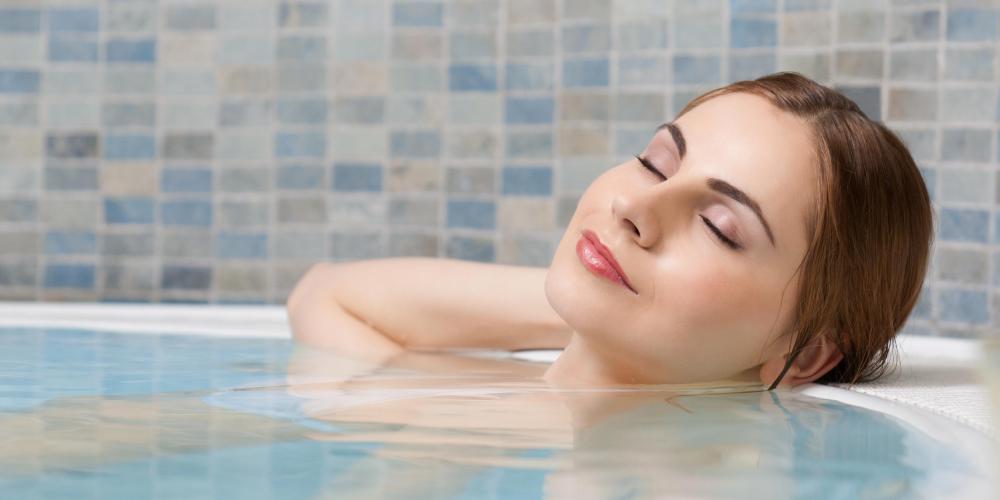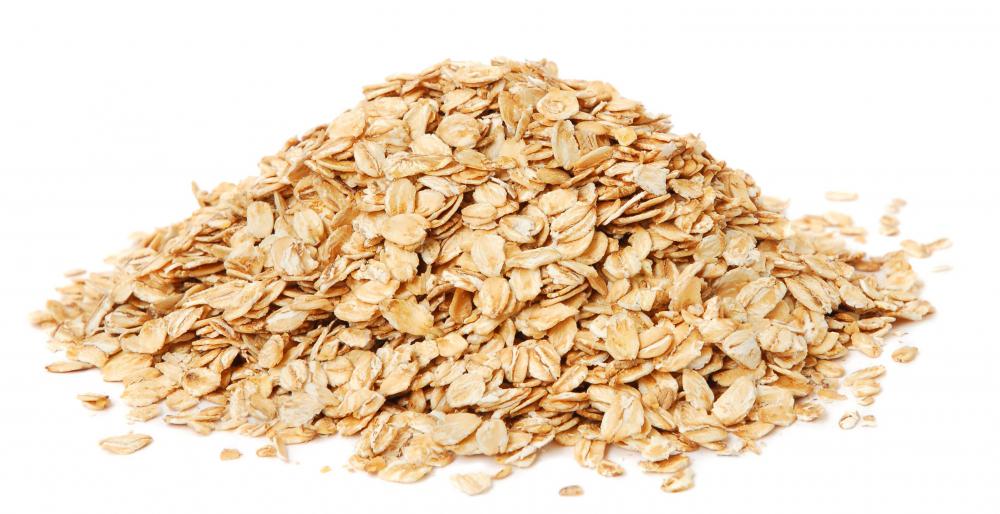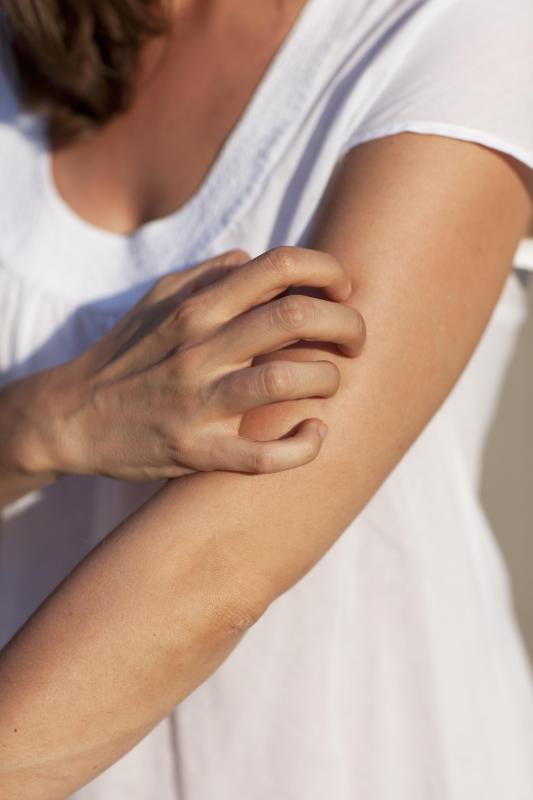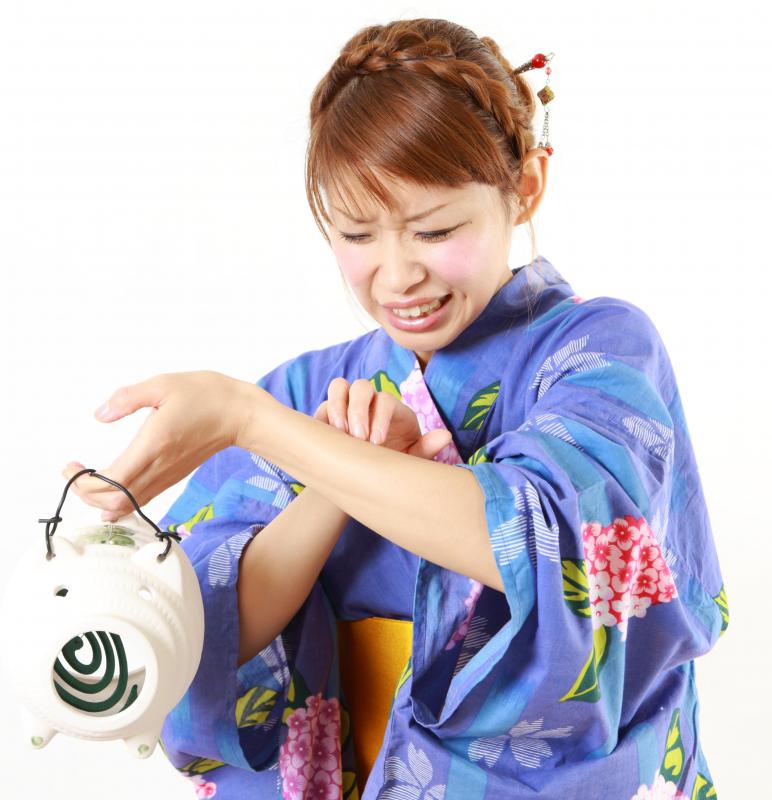At TheHealthBoard, we're committed to delivering accurate, trustworthy information. Our expert-authored content is rigorously fact-checked and sourced from credible authorities. Discover how we uphold the highest standards in providing you with reliable knowledge.
What is Colloidal Oatmeal?
Colloidal oatmeal is a product that consists of oats that have been ground very fine for use as a home remedy for itchy or dry skin. It typically is added to bathwater, creating a liquid that might be described as silky. The user soaks in this liquid for several minutes, and the oatmeal in the water coats the skin. Many people who suffer from certain skin conditions or ailments have reported finding some relief by using this home remedy.
Conditions Helped

People who use colloidal oatmeal say that it is especially effective at treating skin conditions such as eczema, psoriasis, chicken pox and acne. The pain of sunburns, bug bites, poison ivy and other rashes may also be relieved using this home remedy. It has also been used by people who have rosacea.
Why It Helps
The ingredients in colloidal oatmeal might help in many ways. It contains avenacins compounds, which have antifungal properties; saponins, which can help in cleansing; and flavonoids, which might help with absorbing ultraviolet-A (UVA) rays. It also includes vitamin E, which is an anti-inflammatory, along with phenols and starches to help in moisturizing.

What makes it effective at soothing the skin is the cellulose and fiber from the oats. These make a skin-softening emollient that is effective against irritation and redness that comes from conditions such as eczema and rosacea. When skin is soothed, the itching usually is relieved as well.
Directions for Use
Colloidal oatmeal usually is added to warm bathwater. The oats do not sink to the bottom, because of the colloid action of the particles, which disperse throughout the water. This helps it to coat the user's skin and makes it more effective as a treatment for skin conditions than other forms of oats.

For an oatmeal bath, the tub should be filled with lukewarm water, not cool or hot. Several large scoops or cupfuls of the oats should be added to the water. Bathers should soak in the mixture for at least 10 minutes, and then get out and pat the skin dry without rubbing it. An oatmeal bath can be taken three times a day to achieve optimum results. If the skin is too sticky, the bather might choose rinse off afterward with clean, lukewarm water.
How It is Made

To make this remedy, the oats are finely ground so that they can absorb water. If it is made at home, they will need to be processed in a blender or coffee grinder, then tested to determine how fine the particles need to be before they stop sinking in water. The oatmeal should absorb water quickly and give it a milky look.
Safety
Colloidal oatmeal generally can be used without worry because there is no known drug interaction with it. There also is no known nutrient interaction, so holistic or homeopathic remedies should not interact. Oatmeal is generally considered very safe to use. Bathers should avoid getting it in the eyes, as it can be irritating.

Some people might experience an allergic reaction to oatmeal. People who are sensitive to gluten should be cautious as well, especially if any of the bath water is ingested. Although pure oatmeal does not contain gluten, many oat products are susceptible to cross-contamination during production and might contain trace amounts of the protein. Certified gluten-free oatmeal is available in many stores.
AS FEATURED ON:
AS FEATURED ON:


















Discussion Comments
In cream form, it has greatly reduced redness and stopped itching of eczema rash on my shins. Some creams are better than others. To no avail had tried fish oil, coconut oil, aloe vera, glaxal base, calamine lotion.
@SarahGen-- Yea, it is.
My nephew had eczema as a baby and my brother and sister-in-law tried everything! The only thing that worked was colloidal oatmeal baths. It would soothe his skin and moisturize it. It really is a miraculous ingredient for these kind of skin conditions and safe for all ages.
So is colloidal oatmeal and finely ground oats the same thing? Can I use one for the other?
I know "colloidal oatmeal" is available for sale but it's more expensive than regular oatmeal or oats. I don't want to pay extra just because they ground the oats for me before packaging it.
And if I end up using it on a regular basis, it would be cheaper and easier to buy finely ground oats or buy oats and grind it myself.
So what do you guys think? Can I use finely ground oats instead?
Is bath with colloidal oatmeal safe for infants?
My vet told me about colloidal oatmeal shampoo for dogs. My dog has sensitive skin and problems with dandruff, and the vet said the shampoo would work wonders.
She also said I would need to use it several times a week, at least to start out. This wasn't easy, because my dog weighs 90 pounds and doesn't like the bathtub.
The shampoo really did make him stop scratching so much. After about a week of use, his dandruff went away, too. His coat also looked really silky and healthy.
Colloidal oatmeal soap is refreshing to use, but I still prefer soaking in a bath of colloidal oatmeal powder. It is much silkier, and it seems to penetrate the skin better.
My best friend's daughter suffers from eczema, and when prescription medications failed to help her, she tried a colloidal oatmeal bath. It was the only thing that actually worked to stop the itching.
The girl was only two at the time, so she didn't worry about being a little sticky. My friend said that leaving the oatmeal on her instead of rinsing it off made the relief last longer.
@kylee07drg – Yes, you can buy it already ground up. I think there's a pretty big market for it.
Natural colloidal oatmeal is one product that is truly from nature. It's just ground up oatmeal with nothing else added.
Can you buy colloidal oatmeal, or do you have to grind the oats yourself? I don't think I have anything in my kitchen that can grind oatmeal, but I would like to buy the powder if possible. I get really itchy from playing in the grass with my dogs sometimes, and a shower isn't enough to stop the itchiness.
Hand lotion with colloidal oatmeal is definitely one of the best options out there, at least in my experience. It sometimes does not do the whole job for people with seriously dry skin, but it can help maintain softer skin and even does sometimes help more severe cases with time.
I love using products with colloidal oatmeal for my dry skin, especially soaps and lotions. It smells good and it works very well. I especially like that I can find many products with this that are all natural.
Are collodial oatmeal and pure oatmeal oil gluten free?
Post your comments